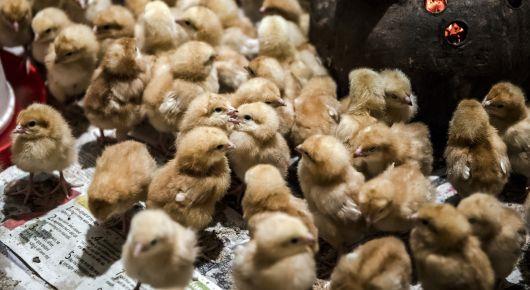Free online training increases capacity of veterinary laboratories in the region

Healthy animals are the basis of successful, profitable, and sustainable livestock production. Especially in the case of poultry, the help of veterinary laboratories is essential to protect the health of flocks.
Still, several laboratories in Europe and Central Asia are using outdated and unreliable technologies, as modern and preferred diagnostic methods have not yet been implemented.
To increase the veterinary laboratories’ capacities and promote the introduction of good laboratory practices in the region, FAO organized a series of virtual training sessions targeting laboratory specialists in the accurate diagnostics of poultry diseases. The training provided a periodic update on poultry diseases and diagnostic procedures, including modern methodologies in the Russian language.
“Solid knowledge is essential to prevent and early detect infectious diseases, as well as to rapidly respond and control them,” said Eran Raizman, FAO senior animal health specialist.
The training covered various topics, from introducing strategies on how to reduce the use of antibiotics, to discussing viral, fungal, bacterial, and parasitic diseases in poultry. The lectures were conducted by Marina Eyngor, head of the Rabies Laboratory at Kimron Veterinary Institute in Israel, a renowned specialist in laboratory methods for diagnosing animal infectious diseases, particularly in poultry.
According to Eyngor, cutting-edge diagnostic methods, such as the Polymerase chain reaction, which detects the pathogen unique genetic material, are gaining more and more popularity among veterinary laboratories in Europe and Central Asia. However, these methods require high qualifications from the laboratory staff in the selection of reagents and in the results interpretation.
“These are the main limiting factors in the expansion of laboratory capacities in viral, bacterial, and parasitic diseases detection in the region,” Eyngor added.
In addition to the lecture on the various diseases and diagnostic procedures, participants received additional supporting materials and presentations, which could further support their day-to-day work in the laboratories.
The training was attended by veterinarians, agricultural workers, laboratory specialists, and biologists from 12 countries in the region. The large number of participants (90 people on average per session) and their questions shows the high need for this information. Several positive responses were received in the feedback collected afterwards, highlighting interest in continued training and conducting similar events.
“Given the high interest and relevance of the topics, there is a need to create a plan for training events to be conducted on a regular basis,” said Eyngor.
To further spread knowledge in the region, all lectures were recorded and made available on FAO’s YouTube channel in Russian language.
Participating countries included Azerbaijan, Belarus, Estonia, Georgia, Kazakhstan, Kyrgyzstan, Latvia, the Republic of Moldova, the Russian Federation, Tajikistan, Ukraine, and Uzbekistan.
20 October 2020, Budapest, Hungary
